Health Benefits Of Bone Broth And Its Side Effects
All healthcare enthusiasts are talking about this protein-rich elixir with a lot of promise.
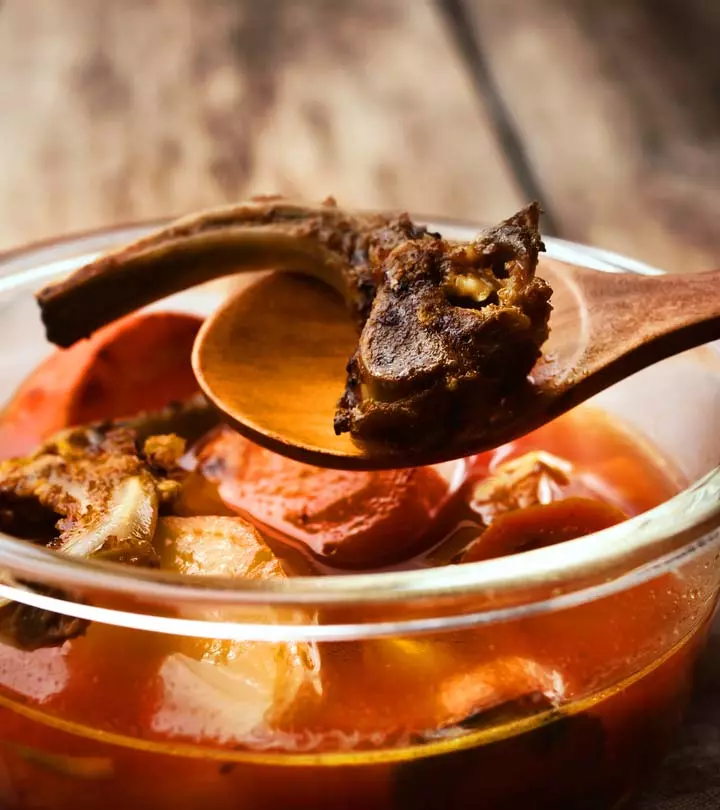
Image: Shutterstock
Bone broth is a nutrient-dense food that found its way into Keto and Paleo diets.
The immense benefits of bone broth have made it increasingly popular among fitness enthusiasts. Consuming bone broth dates back to the Stone Age. The hunters boiled the bones, ligaments, and other non-edible parts of the prey and consumed them. The bones contain many nutrients and consuming bone broth is a great way to get them. It is so healthy that bone broth is also recommended as a part of the diet for patients with autism and ADHDi Attention deficit hyperactivity disorder; a chronic condition that may cause impulsive behaviors, inattention, and hyperactivity. (1).Today, bone broth soups and dishes can be found in restaurants with Michelin stars. You can prepare bone broth at home and use it to make soups, gravies, and a variety of other dishes. Your mom probably makes her special soup with bone broth that leaves you feeling cozy and warm. Read this article to take a closer look at the benefits of bone broth.
 Know Your Ingredient: Bone Broth
Know Your Ingredient: Bone BrothWhat Is It?
The soup-adjacent liquid obtained from boiling bones
What Are Its Benefits?
Bone broth enhances cell regeneration, maintains cell water level, and improves gut health, digestion, and bone mineral density.
Who Can Consume It?
Drinking bone broth is beneficial for people with leaky gut, IBS, and IBD.
How Often?
1 cup or 237 mL daily.
Caution
Individuals with glutamine and histamine intolerance should avoid drinking bone broth.
In This Article
What Are The Health Benefits Of Bone Broth?
Bone broth is a delicious protein-rich soupy kind of liquid that you get from boiling the bones of animals.
It is known to have many health benefits by its use in traditional medicine and home remedies. However, due to the lack of sufficient clinical trials and studies these benefits have not been fully substantiated. Here are a few potential health benefits of consuming bone broth.
- Source Of Amino Acids
Bone broths contain an amino acid called glutamine that is responsible for maintaining the water level of your cells and is responsible for enhancing the regeneration of cells and improving your gut health (2). Amino acids are the microscopic molecules that are present in your body that combine to form the various proteins that help your body break down food. It is important to note that while bone broth does contain amino acids, it cannot be treated as the go-to source. Studies have shown that when bone broth is prepared using a standard recipe, the concentration levels of amino acids such as proline, and glycine that are inherently available in bone broth were found to be low. However, levels of the presence of these amino acids increased when bone broth was prepared in cafes and restaurants (2).
 Trivia
Trivia- Aids Digestion And Improves Gut Health

Bone broth is made by stewing bones on simmer for a long time. This results in the release of proteins that give the bone broth its meaty taste and release macronutrientsi Essential nutrients such as carbohydrates, fats, and proteins that the body needs to generate energy and maintain bodily functions. such as actin and gelatin (3). Actin is an essential molecule that is present in your body and is responsible for the contraction and expansion of your involuntary muscles such as your intestines, stomach, and blood vessels (4). Actin helps in better absorption of the nutrients and improves your gut health by increasing its ability to absorb nutrients in a much better way (5). Along with actin, gelatin is another protein that is derived from collagen that is found in bone broth. This protein may be responsible for improving your bone mineral density and nutrition (6).
- May Help In Improving Immunity
When you’re down with a fever or flu, your go-to food is a nice warm bowl of chicken soup made with chicken bone broth that makes you feel better. Does that mean that chicken soup can cure fever? The answer is no. There is not enough scientific evidence to prove that chicken soup does that. But when you break down the ingredients that go into making chicken soup, you will notice that all of the ingredients combined are good for your immune system. The bone marrow present in chicken bones that are used to make the broth contains high levels of an amino acid called proline. Proline plays a major role in synthesizing the proteins in your body, regulating metabolism, healing your wounds, and improving your immunity(7). Considering that soup is mostly liquid, it is easier to consume when the fever reduces your appetite. It also contains electrolytes that help you in staying hydrated. Glutamine that is present in bone broth helps in acting as a barrier against the various toxins and allergens and helps keep your intestinal lining intact. This, in turn, helps in preventing numerous gastrointestinal diseases such as Inflammatory Bowel Syndromei A group of chronic inflammatory conditions that cause pain and swelling in the intestine, resulting in diarrhea and rectal bleeding. (IBD), Irritable Bowel Syndromei A group of symptoms that affect the digestive system and lead to pain in the abdomen and change in bowel movements. (IBS), and enterocolitisi An inflammatory condition affecting the digestive tract, including the linings of the small and large intestines. (8).
- May Improve Skin And Joint Health

The collagen present in the bone broth may help in improving the health of your skin and joints. Collagen is essential in keeping the elasticity of your skin as you age and also protects your skin from UV photodamage. Studies showed that the aging of the skin, wrinkles, lines, and dehydration of the skin was significantly reduced when collagen in the form of soup made from the bones and cartilage of chicken was consumed (9). Another study suggests that collagen in young adults helps in improving the functioning of your joints and may also alleviate joint pain (10). Besides Bone broth, there are various collagen-rich foods that you should know about that can give you a collagen boost.
Catherine Rall, a Certified Nutritionist, says, “There’s nothing in bone broth that is specifically good for weight loss, but it is highly nutritious. It’s rich in protein, especially collagen, and also contains amino acids and electrolytes. When used as part of a balanced, sustainable diet, it can promote strong muscles and bones and healthy skin.”
- May Help In Improving Sleep

The amino acid glycine which is present in bone broth is known to have a wide variety of health benefits such as being helpful in detoxification and being anti-inflammatory (11). It also is known to help control diabetes and the complications that are caused by it and help promote sleep (12).
A blogger tried the bone broth diet and shared his experience. He made a customized diet plan where he followed a keto diet for 5 days in a week, having bone broth twice each day. For the remaining two days in the week, he would only have bone broth and no other food. After following this plan for 21 days, he noticed improvements. He writes, “In the past I have had troubles going to bed early and would try to tire myself out so that I can be fast asleep. But after drinking bone broth daily I’m going to bed at the same time daily. And I usually sleep soundly till the next day (i).” He adds that his nails have become stronger and he lost weight as well.
 Trivia
TriviaBone broth can be a nutritious addition to your diet, but can it help you shed those excess pounds? Andrea Burton, a BANT registered nutritional therapist, says, “Bone broth can be a part of a healthy diet and, although there is limited scientific evidence, can potentially help with weight loss. This is because it has a reasonable amount of protein per serving – between 7g and 10g depending on how it was made. Protein is the macronutrient that helps us to feel fuller for longer and can help to curb cravings. Protein also helps us to build lean muscle mass which can help to burn more calories throughout the day. Bone broth is relatively low in calories and carbohydrates.”
Did you ever imagine that something as simple as boiling bones, making broth, and drinking it could have so many health benefits? Let us look at the nutritional values of bone broth.
Nutritional Values Of Bone Broth
Andrea says, “Bone broths are a great source of micronutrients, collagen, and amino acids – all things that are needed for healthy gut tissue. Broths also contain minerals such as calcium, magnesium, and phosphorus which play key roles in gut health and the health of the microbiome.” These minerals are naturally available in bones. In addition, bone broth made from the bones of beef contains amino acids that are essential for your body. Beef bone broth especially is a rich source of iron that helps in fighting anemia (13). Here are the nutritional details of bone broth. Nutritional Values Of Bone Broth Per 100ml (14):
Name | Amount | Unit |
Energy | 51 | kcal |
Protein | 3.8 | g |
Total Fat | 2.95 | g |
Carbohydrates | 1.69 | g |
Dietary Fiber | 0.4 | g |
Total Sugar | 0.42 | g |
Calcium | 17 | mg |
Iron | 0.46 | mg |
Sodium | 165 | mg |
Vitamin C | 2.5 | mg |
Vitamin A | 316 | UI |
Saturated Fats | 0.84 | g |
Trans Fats | 0 | g |
Cholesterol | 15 | mg |
While meat lovers enjoy the nice and tasty bone broth, what about vegetarians? Let us find out if there is an alternative for vegetarians.
How To Make Bone Broth
Ingredients
- 2-3 pounds of beef, chicken, or pork bones
- 2 tablespoons of apple cider vinegar
- 1 large onion (chopped)
- 2 carrots (chopped)
- 3-4 garlic cloves
- A handful of fresh parsley
- 2 bay leaves
- Salt and pepper, to taste
- Water
How To Prepare
- Roast the bones in the oven at 400°F (200°C) for 30-40 minutes until browned.
- Place the bones in a large pot. Add in the apple cider vinegar, vegetables, garlic, parsley, bay leaves, salt, and pepper.
- Pour enough water to fully submerge the ingredients in the pot.
- Bring the mixture to a boil, then reduce the heat to low. Let it simmer for 12-24 hours to extract the nutrients and flavor from the bones.
- After simmering, strain the broth to remove the bones and vegetables. Store the clear broth in jars or containers for a week or freeze for several months.
Now, let’s answer an important question…
What About A Broth For Vegetarians?
Is there a broth for vegetarians that is as good as the bone broth? Well yes, there is! And it’s not difficult to make it either. All you need are vegetables that you use on a regular basis and that you can easily find in your kitchen or your local supermarket.
Making A Simple Vegetable Broth
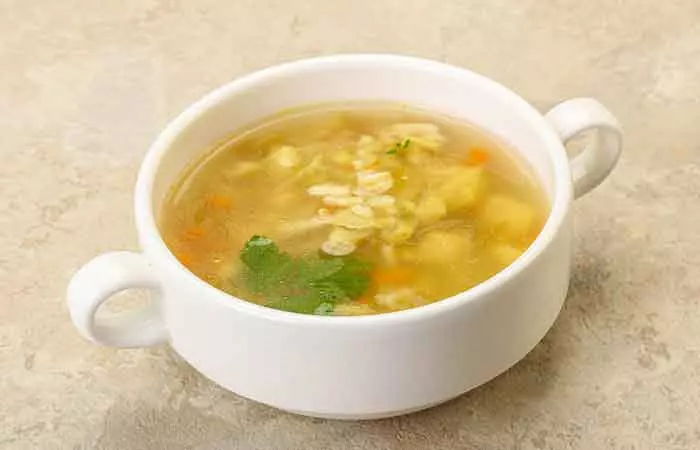
Here is a quick and simple vegetarian broth that you can make with the least amount of ingredients and tastes oh so good! Ingredients Required
- 500 gms celery
- 1.5kg onion
- 500 gm chopped carrots
- 500gm of tomato with their pits removed
- 500 gm chopped green capsicum
- 500 gm diced turnips
- 2 tbsp of olive oil
- 3 cloves of garlic
- 3- 4 cloves
- 1 bay leaf
- 6-8 whole black peppercorns
- 1 bunch of freshly chopped parsley
- 4.5 liters of water
- 1 large pot for cooking
- 1 colander or sieve
Preparation
- Preheat your oven to 230℃ or 450℉.
- Remove the tender parts and leaves of the celery and keep them aside.
- In an oven-safe tray, toss the onions, carrots, tomatoes, capsicum, and turnips with olive oil and place the tray in the oven. Stir these vegetables every 15 minutes. Cook until all the vegetables have become brown and the onions begin to caramelize. This should take about an hour.
- Once the vegetables have been browned, add them to the large pot along with the celery, garlic, bay leaf, peppercorns, cloves, and parsley, and add 4.5 liters of water.
- Bring this mixture to a full boil and then reduce the flame to simmer and cover the pot.
- Cook until the liquid is reduced to half of its original quantity.
- Once the liquid has been reduced to half, pour the broth through a colander or sieve into another container. Voila! Your tasty and healthy vegetarian broth is ready! You can consume this immediately or store it for later use.
The vegetables that remain in the sieve need not be added to the broth, you can eat them instead of wasting them. Now that you have your bone broth and your vegetable broth, are you wondering…..
Is There Any Scientific Evidence To Prove Bone Broth Is Better Than Other Broths?
There is no scientific evidence to claim or even suggest that bone broth is better than other broths. Whether it is bone broth or vegetable broth, the ingredients that go into making these broths are almost the same. When you add your favorite vegetables to your bone broth for flavoring, the nutrients from those vegetables are absorbed into your broth. Broths, be it vegetable-based or bone-based, are good for your health as we have discussed all throughout this article. It comes down to your personal choice, whether you prefer a vegetarian option or a non-vegetarian, and everything else is insignificant.
How Much Bone Broth Should You Drink Daily?
The answer is simple – drink enough bone broth daily. Andrea says, “It really does depend on your health and why you want to drink the broth. I would always recommend seeking the advice of a registered nutritional therapist before embarking on specific eating regimes. And remember that bone broth contains amino acids (the building blocks of proteins) and various minerals that can interact with some medications such as blood thinners.”
Bone broth is a great way to get your daily dose of vitamins and minerals that are needed for optimal health. It can help boost the immune system, heal wounds, fight inflammation, reduce pain, increase energy levels, and much more! This graph from a 2021 study published in Medicina shows the anti-inflammatory capacity of bone broth. The administration of bone broth reduces histological damage and inflammation in murine models. From the analysis, animal models (BB post-UC) that received prophylactic treatment of bone broth have an anti-inflammatory effect that is mediated by the expression of cytokines (INF-γ).

Evaluation Of The Expression Of Pro-Inflammatory Cytokines (2^-ΔΔCt)
Source: Analysis of the Anti-Inflammatory Capacity of Bone Broth in a Murine Model of Ulcerative ColitisYou can always drink bone broth regularly as part of a healthy diet and lifestyle. However, Andrea suggests preferring homemade bone broth over store-bought ones. She says, “It’s always advisable to make your own broth so that you know exactly what’s in it rather than buying one that may contain preservatives and other less desirable ingredients. Always read the label! The main risk to drinking shop-bought bone broth every day is the potential to ingest toxic heavy metals, like lead1 and cadmium – another reason to make your own. Always choose bones from grass-fed or organic animals to reduce the risk of heavy metal contamination.”
Bone broth is simply made from boiling bones until they become tender. Bones include beef, chicken, turkey, lamb, pork, fish, and even veggie bones like broccoli stems, cauliflower stems, celery, etc. If you want to make bone broth at home, you need to start with organic bones. If you are interested in gaining muscle and losing weight, there is a specific diet that has been prescribed to you by your dietician or nutritionist. Consult with them as to how much bone broth is required for you based on your body composition. If you are on a keto or paleo diet, check with your dietician to see if you need to include bone broth in your diet and how much and how frequently you need to drink it. While the health benefits of bone broth are undoubtedly great, let us find out if there are any side effects to drinking bone broth? Let’s find out.
Does Bone Broth Have Side Effects?

This protein-rich bone broth is a great inclusion in your diet regimen, especially when you are looking to improve your health. However, certain foods tend to react a bit differently with our bodies and may have some side effects. It is not often that you come across the side effects caused by bone broth. Nevertheless, it is essential for you to know that bone broth may cause the following side effects (15).
- May cause indigestion
- May cause headaches
- May leads to an increase in heart rate
- May cause abnormal sweating
- May cause swelling in your hands and feet
- May cause dryness in the mouth and excessive sneezing
Catherine says, “One thing to watch out for in bone broth is oxalates. These can bind to calcium and lead to kidney stones, especially in sensitive individuals. Oxalates are generally found in vegetables, so making your bone broth without vegetables is a good way to prevent this issue.”
All of these side effects may be caused due to the adverse reaction of glutamine or histamine that is present in the bone broth. Which could mean that you have glutamic acid sensitivity or your body is intolerant to histamine. Glutamic acid is an amino acid that is abundantly present in your body. It is responsible for maintaining the metabolism and integrity of your cells. Since bone broth also contains glutamic acid in high quantities, it may overwhelm your body and may cause the aforementioned side effects (15). Another reason why you could possibly face these side effects is if you have histamine intolerance. This is caused due to imbalance of the accumulated histamine or the inability of your body to break down histamine (16). Since bone broth has high levels of histamine, consuming this in large quantities may cause histamine intolerance.
Andrea says, “Research suggests that there are some safety concerns with bone broth consumption for those with kidney disease or after kidney transplants. There are nutrients in bone broth that are good for kidney health, such as collagen, glycine, and glutamine as well as anti-inflammatory compounds such as glucosamine and chondroitin. However, there are also high levels of minerals and electrolytes such as potassium and sodium which, although important for general health, may need to be limited in those with kidney issues to further avoid damage. A suggestion is to avoid high-potassium vegetables such as carrots, simmer for a lesser amount of time, and add more water.”
Now you know the benefits and side effects of bone broth, and how adding bone broth to your soup can accentuate its flavors. But, for all you vegetarians out there who love a good soup, you must be wondering if there is a non-meat, vegan or vegetarian alternative to bone broth?
Infographic: Top 5 Health Benefits Of Bone Broth
Bone broth is an age-old culinary delight that has become more popular due to its high nutritional content and wide range of potential health benefits. It can help boost your immunity and support your gut health.Check out the infographic below to learn more about the top reasons you should include bone broth in your diet. Illustration: StyleCraze Design Team
Frequently Asked Questions
Does bone broth make you poop?
Bone broth can ease constipation and chronic diarrhea and relieve other bowel issues.
Is bone broth a good probiotic?
Bone broth is not a probiotic, but it increases the number of healthy bacteria to improve your gut health.
Does it matter what time you drink bone broth?
There is no right or wrong time to drink bone broth. It depends on your personal preferences and needs. You can drink it every morning on an empty stomach or after a meal to boost digestion.
Is bone broth prebiotic?
Anecdotal evidence suggests that bone broth contains essential vitamins and prebiotic fiber that can boost digestion and improve gut health.
Does bone broth improve mood?
Yes, bone broth is rich in a neurotransmitter called glutamate that may have a calming effect on the nervous system and could potentially improve mood and symptoms of depression (17), (18).
Does bone broth regulate hormones?
Yes, studies indicate that the amino acids and glycine found in bone broth may improve hormone production and help support hormone health (19). However, further studies are needed to support this claim.
Is bone broth good for PCOS?
Anecdotal evidence suggests that the collagen found in bone broth may balance insulin levels and boost gut health, both of which are important for managing symptoms of PCOS. However, further studies are warranted to support this claim.
Key Takeaways
- Bone broth is a soupy liquid prepared by slowly boiling the bones and cartilages of animals.
- It is a good source of amino acids and minerals like calcium, magnesium and phosphorus.
- Bone broth has several health benefits like strengthening immunity, improving digestion and skin, and boosting bone and joint health.
- If you are sensitive to glutamic acid or histamine, you may have an adverse reaction to bone broth.
Illustration: Health Benefits Of Bone Broth And Its Side Effects
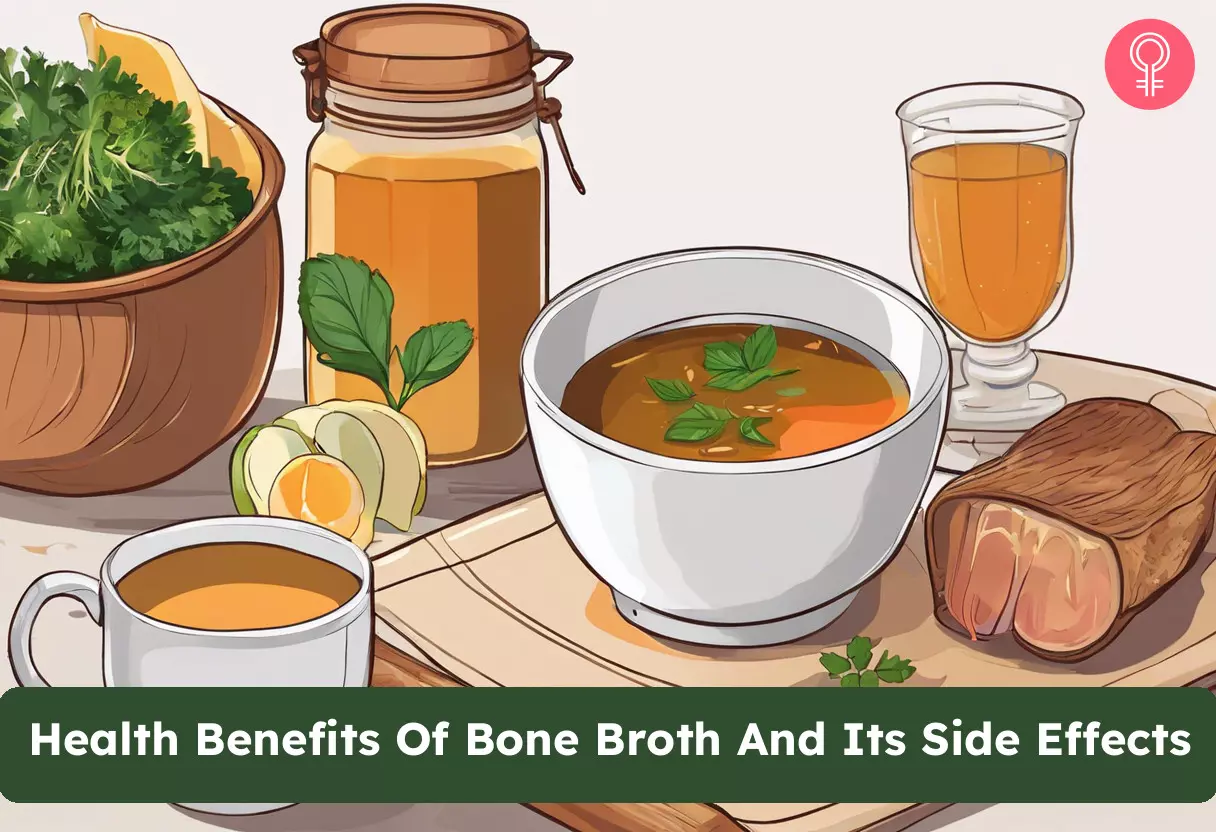
Image: Stable Diffusion/StyleCraze Design Team
Bone broth helps strengthen the joints and improve digestive health. To learn more about its amazing health benefits, watch the video below.
Personal Experience: Source
StyleCraze's articles are interwoven with authentic personal narratives that provide depth and resonance to our content. Below are the sources of the personal accounts referenced in this article.
i. I lose X kg from 21 days bone broth diet. Here’s my experience on the diet.https://hooyenhui.medium.com/i-lose-x-kg-from-21-days-bone-broth-diet-f988a7f7947a
References
Articles on StyleCraze are backed by verified information from peer-reviewed and academic research papers, reputed organizations, research institutions, and medical associations to ensure accuracy and relevance. Read our editorial policy to learn more.
- Essential And Toxic Metals In Animal Bone Broths https://www.ncbi.nlm.nih.gov/labs/pmc/articles/PMC5533136/
- Bone Broth Unlikely to Provide Reliable Concentrations of Collagen Precursors Compared With Supplemental Sources of Collagen Used in Collagen Research https://pubmed.ncbi.nlm.nih.gov/29893587/
- Identification And Characterization Of The Proteins In Broth Of Stewed Traditional Chinese Yellow-Feathered Chickens https://www.sciencedirect.com/science/article/pii/S0032579119310594
- The Cell: A Molecular Approach. 2nd Edition. https://www.ncbi.nlm.nih.gov/books/NBK9961/
- Microvilli Give Gut Vesicles The Brush-Off https://www.ncbi.nlm.nih.gov/labs/pmc/articles/PMC2712953/
- Ingestion Of Gelatin Has Differential Effect On Bone Mineral Density And Body Weight In Protein Under Nutrition https://www.researchgate.net/publication/11987523_Ingestion_of_Gelatin_Has_Differential_Effect_on_Bone_Mineral_Density_and_Body_Weight_in_Protein_Undernutrition
- Proline And Hydroxyproline Metabolism: Implications For Animal And Human Nutrition https://www.ncbi.nlm.nih.gov/labs/pmc/articles/PMC3773366/
- Role of Glutamine in Protection of Intestinal Epithelial Tight Junctions https://www.ncbi.nlm.nih.gov/labs/pmc/articles/PMC4369670/
- Ingestion Of Biocell Collagen(®) A Novel Hydrolyzed Chicken Sternal Cartilage Extract; Enhanced Blood Microcirculation And Reduced Facial Aging Signs https://pubmed.ncbi.nlm.nih.gov/22956862/
- Improvement Of Activity-Related Knee Joint Discomfort Following Supplementation Of Specific Collagen Peptides https://pubmed.ncbi.nlm.nih.gov/28177710/
- Beneficial Effects Of The Amino Acid Glycine https://www.researchgate.net/publication/303951608_Beneficial_Effects_of_the_Amino_Acid_Glycine
- Dietary Glycine Is Rate-Limiting for Glutathione Synthesis and May Have Broad Potential for Health Protection https://www.ncbi.nlm.nih.gov/labs/pmc/articles/PMC5855430/
- The Daily Value Of Micronutrients In Newly Produced Beef And Horse Concentrated Bone Broth https://www.researchgate.net/publication/328226707_The_daily_value_of_micronutrients_in_newly_produced_beef_and_horse_concentrated_bone_broths
- Nutritional Values Of Bone Broth https://fdc.nal.usda.gov/fdc-app.html#/food-details/551729/nutrients
- Side Effects of Long-Term Glutamine Supplementation https://www.researchgate.net/publication/230879692_Side_Effects_of_Long-Term_Glutamine_Supplementation
- Histamine and histamine intolerance https://pubmed.ncbi.nlm.nih.gov/17490952/
- GABA and glutamate in the human brain https://pubmed.ncbi.nlm.nih.gov/12467378/
- Glutamatergic System in Depression and Its Role in Neuromodulatory Techniques Optimization https://www.ncbi.nlm.nih.gov/pmc/articles/PMC9047946/#:~:text=Lower%20glutamine%2Fglutamate%20levels%20have,in%20treatment%2Dresistant%20major%20depression
- Stimulatory effect of glycine on human growth hormone secretion https://pubmed.ncbi.nlm.nih.gov/622050/
Read full bio of Reda Elmardi
- Andrea Burton is a BANT-registered nutritional therapist. She has graduated from the College of Naturopathic Medicine in 2017 and set up her own nutritional therapy practice in January 2018. After gaining an NTEC in Nutrition & Cancer, Andrea began to specialise in nutrition to support cancer diagnoses. She is a founding member of Inspired Eating, which is a group of nutritionists who run courses for cancer charities. Andrea is also trained in nutrigenomics, and is a member of the British Association of Nutrition and Lifestyle Medicine. Prior to becoming a nutritional therapist, she worked in the tech PR market for over 25 years and ran her own PR company for 15 years. She is now a Technical Advisor at ADM Protexin, manufacturers of the Bio-Kult and Lepicol ranges.
 Andrea Burton is a BANT-registered nutritional therapist. She has graduated from the College of Naturopathic Medicine in 2017 and set up her own nutritional therapy practice in January 2018. After gaining an NTEC in Nutrition & Cancer, Andrea began to specialise in nutrition to support cancer diagnoses. She is a founding member of Inspired Eating, which is a group of nutritionists who run courses for cancer charities. Andrea is also trained in nutrigenomics, and is a member of the British Association of Nutrition and Lifestyle Medicine. Prior to becoming a nutritional therapist, she worked in the tech PR market for over 25 years and ran her own PR company for 15 years. She is now a Technical Advisor at ADM Protexin, manufacturers of the Bio-Kult and Lepicol ranges.
Andrea Burton is a BANT-registered nutritional therapist. She has graduated from the College of Naturopathic Medicine in 2017 and set up her own nutritional therapy practice in January 2018. After gaining an NTEC in Nutrition & Cancer, Andrea began to specialise in nutrition to support cancer diagnoses. She is a founding member of Inspired Eating, which is a group of nutritionists who run courses for cancer charities. Andrea is also trained in nutrigenomics, and is a member of the British Association of Nutrition and Lifestyle Medicine. Prior to becoming a nutritional therapist, she worked in the tech PR market for over 25 years and ran her own PR company for 15 years. She is now a Technical Advisor at ADM Protexin, manufacturers of the Bio-Kult and Lepicol ranges. - Catherine Randall is a Registered Dietitian Nutritionist with six years of experience in nutrition counseling, clinical nutrition, and meal planning. She graduated from the University of Rhode Island and aims to educate her clients on all aspects related to nutrition and health.
 Catherine Randall is a Registered Dietitian Nutritionist with six years of experience in nutrition counseling, clinical nutrition, and meal planning. She graduated from the University of Rhode Island and aims to educate her clients on all aspects related to nutrition and health.
Catherine Randall is a Registered Dietitian Nutritionist with six years of experience in nutrition counseling, clinical nutrition, and meal planning. She graduated from the University of Rhode Island and aims to educate her clients on all aspects related to nutrition and health.
Read full bio of Ravi Teja Tadimalla
Read full bio of Payal Karnik






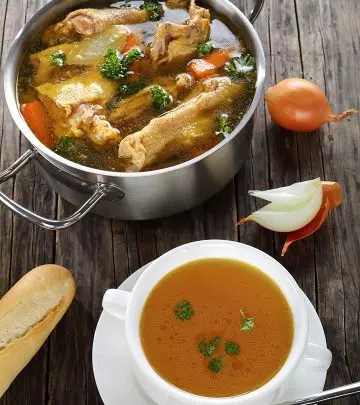
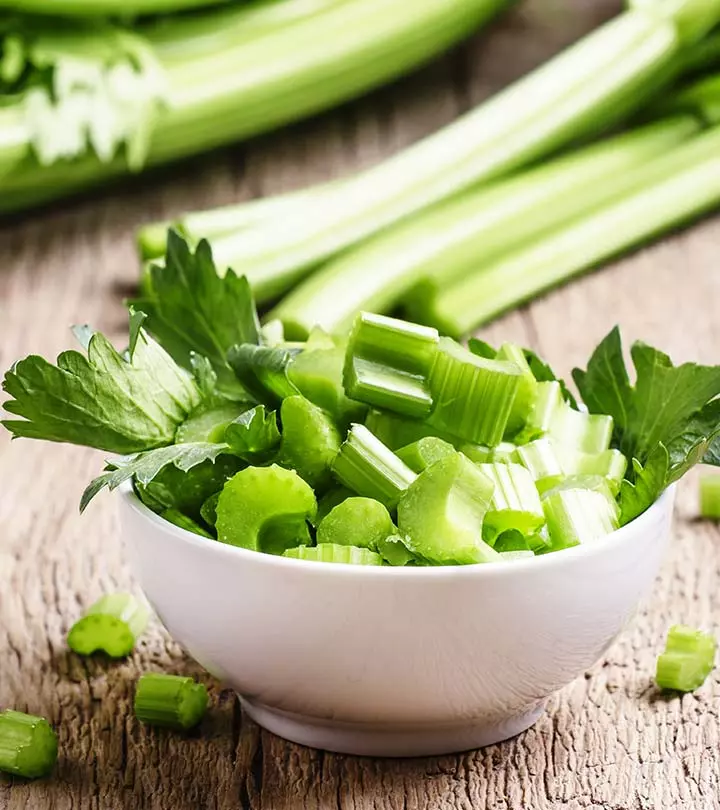
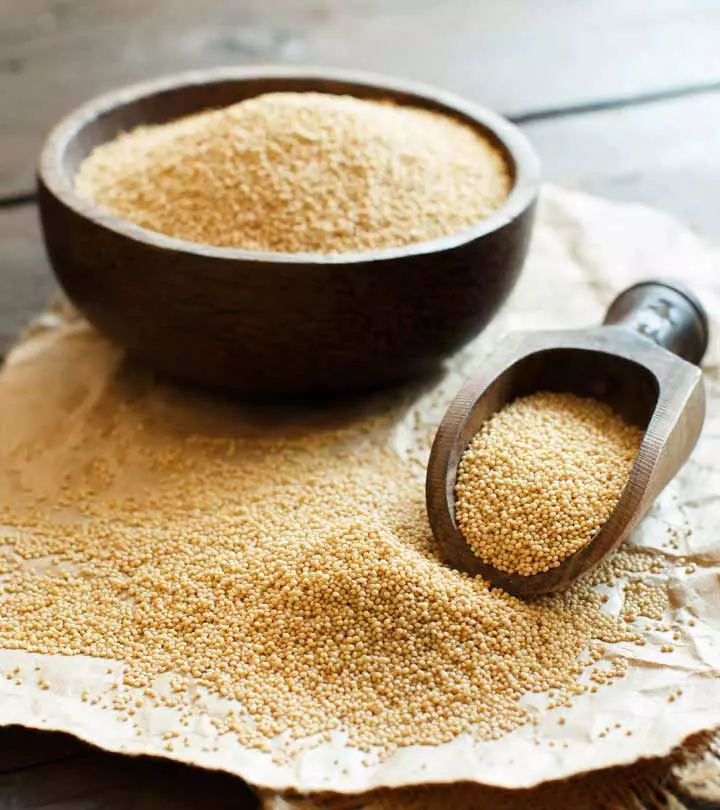
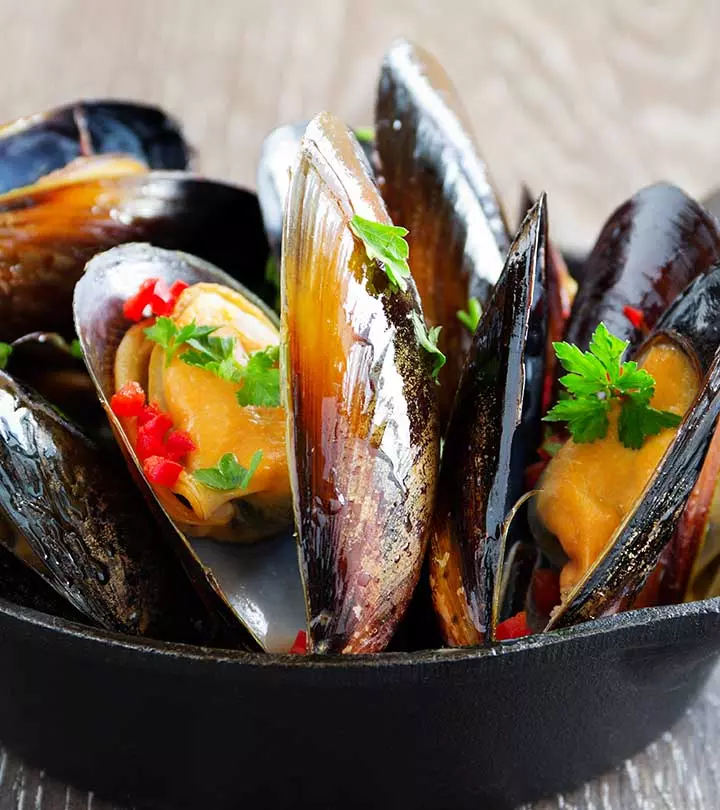
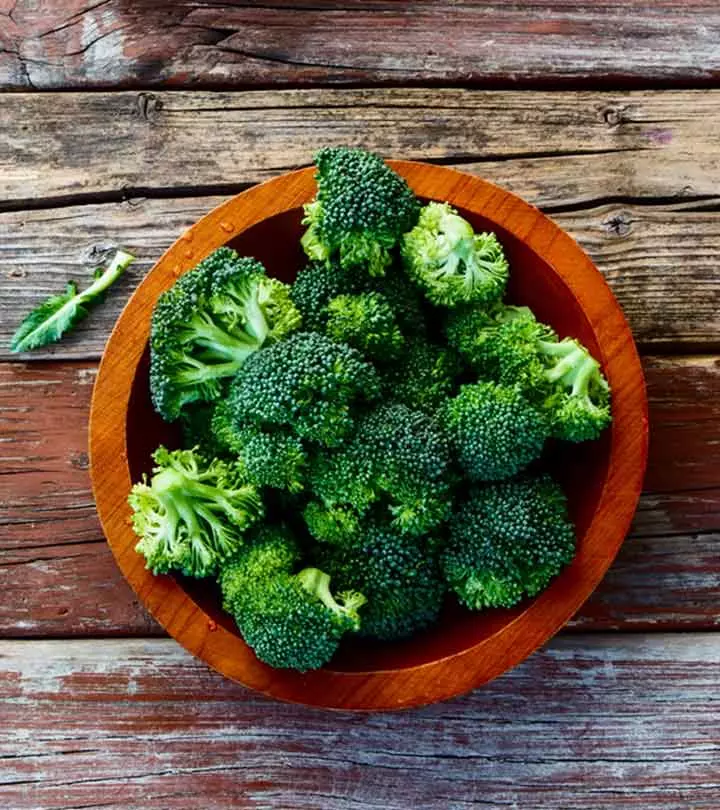

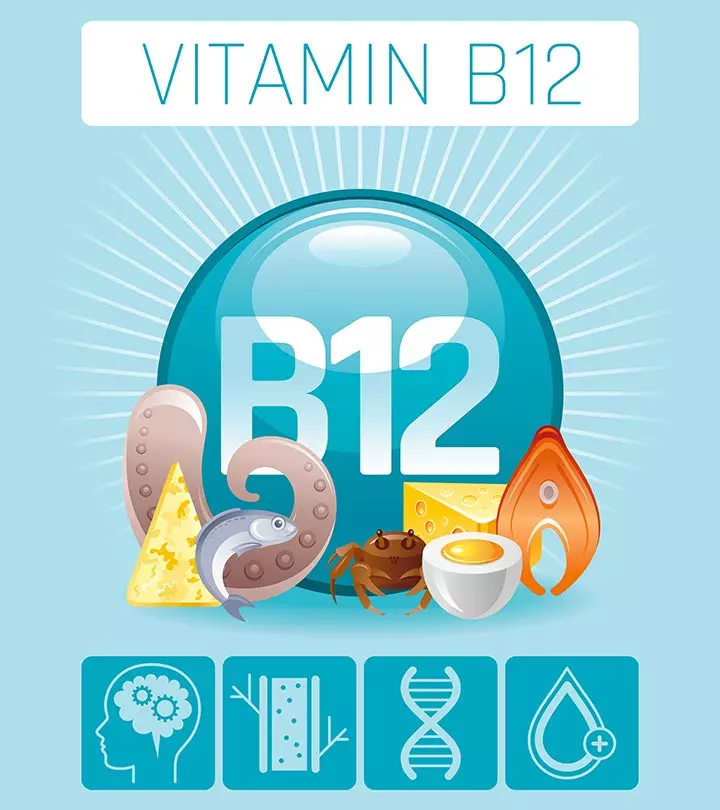



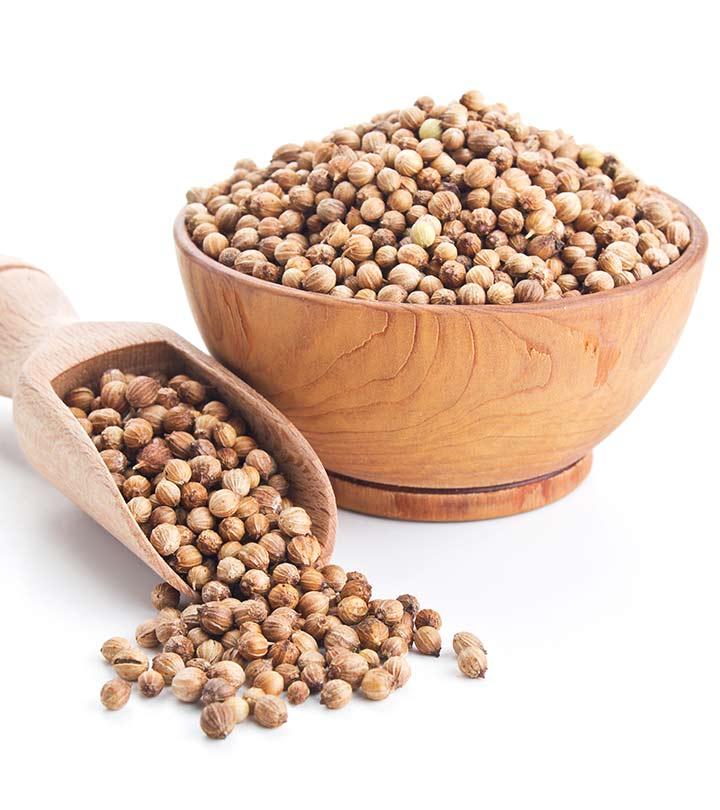
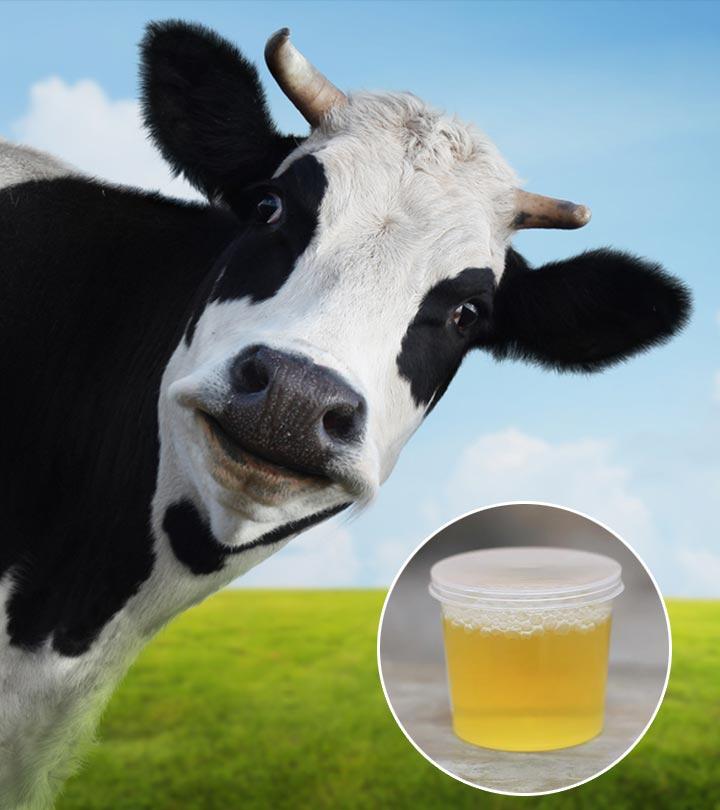
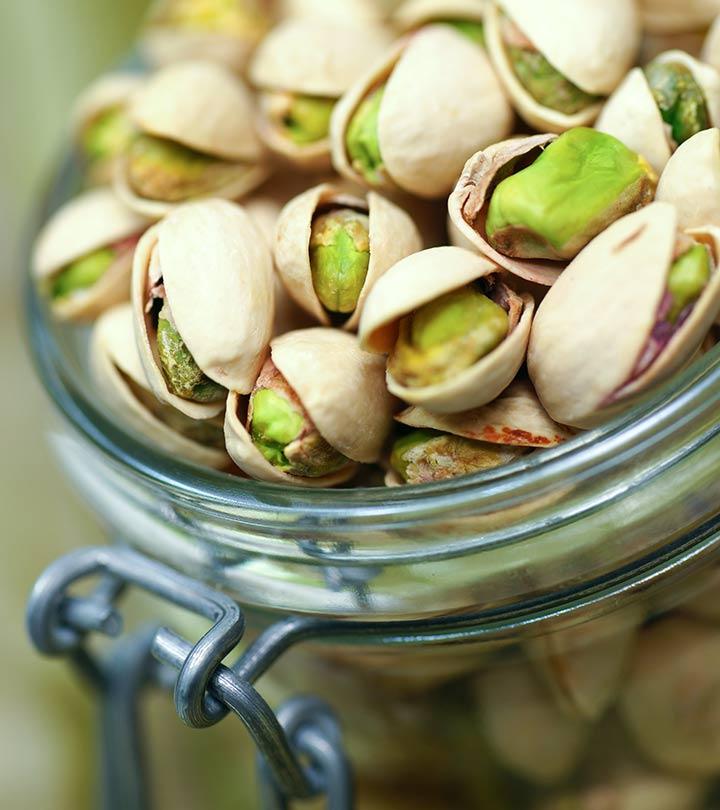

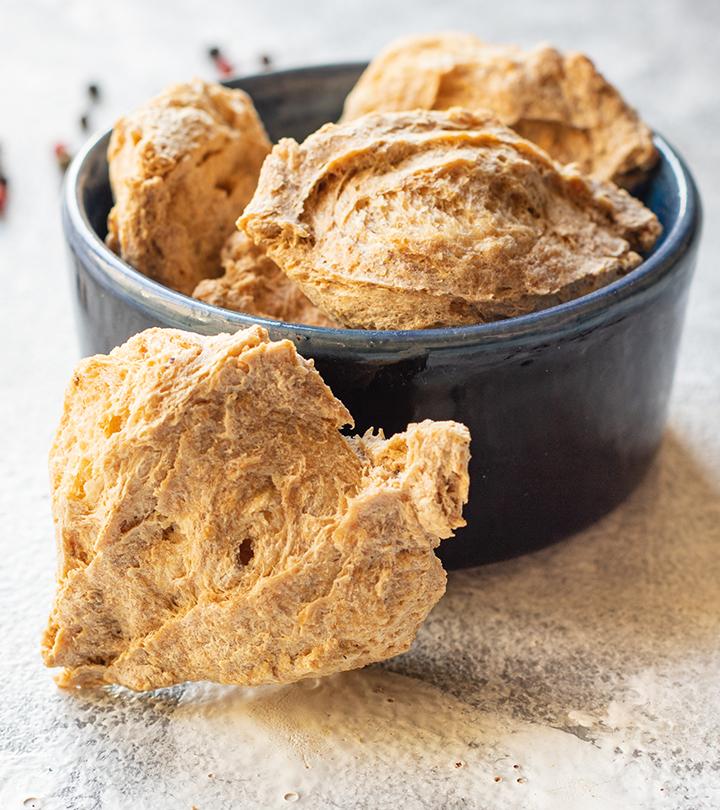

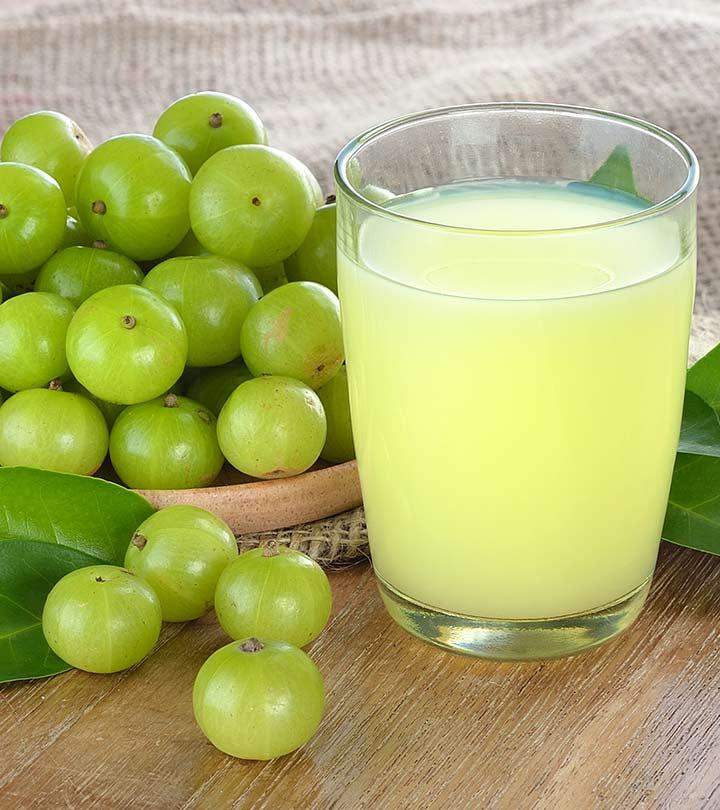
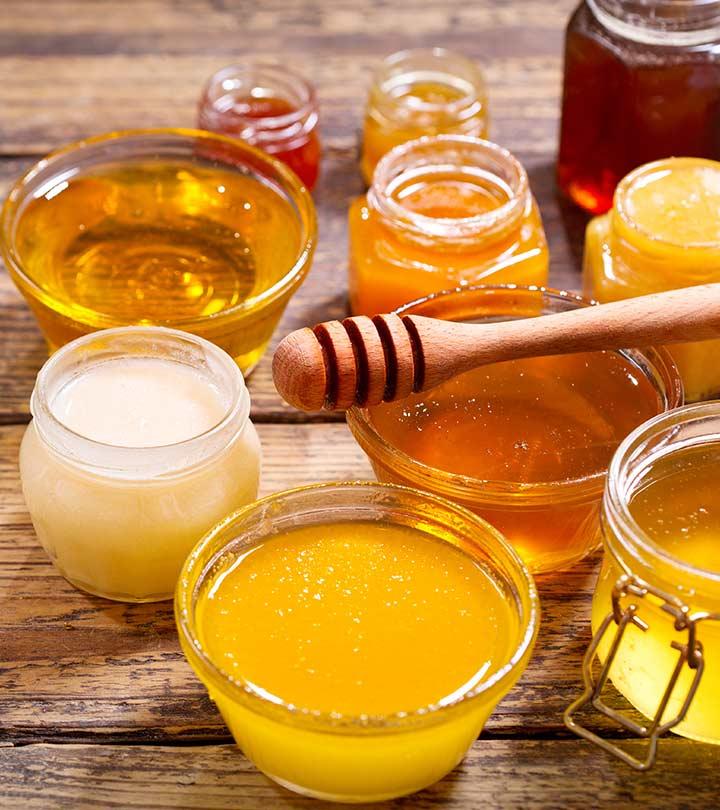
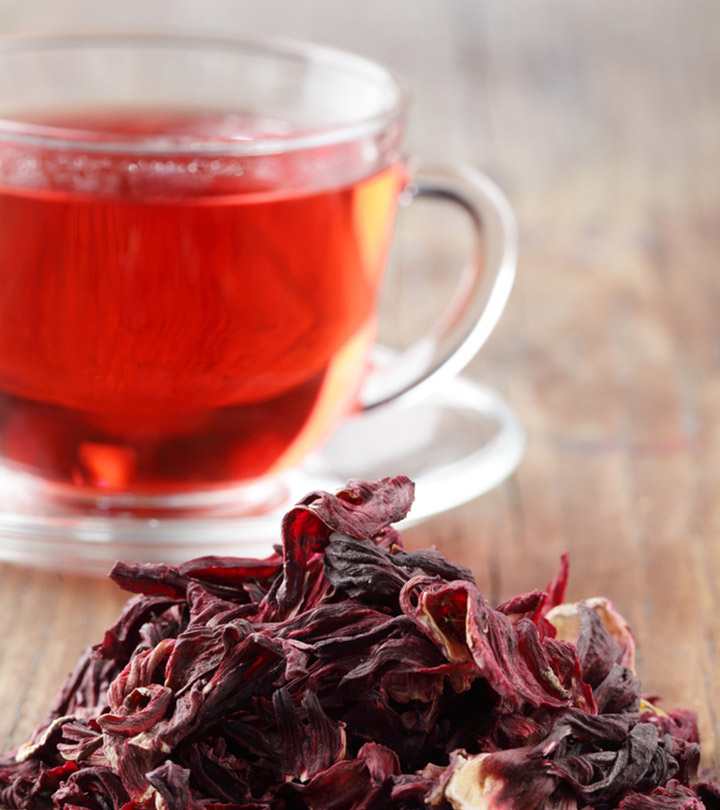

Community Experiences
Join the conversation and become a part of our empowering community! Share your stories, experiences, and insights to connect with other beauty, lifestyle, and health enthusiasts.